 Conquer the common cold like a boss. Conquer the common cold like a boss. The common cold: It happens to the best of us...but what if you could prevent it? Whether you pick it up from your kids at daycare or there’s something going around the office it might seem inevitable to catch a cold once a year… or more. Maybe not. The common cold is used to describe a cluster of typical symptoms - sneezing, sinus congestion, runny nose, sore throat, and headaches – but can actually be caused by more than 35 different viral strains. And each of these strains can adapt and mutate. So yes, there is ALWAYS something going around. The question is: are you vulnerable? While we commonly think of October-March as “cold and flu season”, I tend to disagree. Yes, viruses are more common during this time. On the other hand, we are also busier and more stressed. Between Halloween, Thanksgiving, Christmas/Hannukah/Kwanza, New Years, Valentines Day and Easter sugar consumption is at an all time high. Most Canadians are deficient in Vitamin D – a potent immune support – unless we are also snow birds. We spend a lot more time indoors, breathing recycled air. So while colds are more common, we also have the odds stacked against us and our bodies aren’t always able to ward off viruses and bugs. The trick is building up your body’s resistance – since coming across the cold is inevitable – so that you are better able to withstand or bounce back quicker. 1. Eat more colorful vegetables. Different colors of vegetables offer different vitamins, antioxidants and healing properties so it’s a great idea to change up what you are eating. Almost all of us could stand to eat more too. Aim for 7 + servings per day. One serving is 2 handfuls of greens or 1 cup of other veggies. 2. Reduce exposure. Wash your hands with regular soap and water. Unless you are required to use hand sanitizer skip antibacterial hand soaps and sanitizers as many contain an ingredient called triclosan that is a known hormone disrupter. While we can’t always avoid exposure, keep your distance from people that are sick. Bring your own pen to the bank, keep tissues handy and wipe down common area surfaces with soap and water. 3. Go to bed. Getting enough sleep throughout the year is crucial. If you do get sick, stay home and rest to avoid infecting others. Unless you absolutely have to be somewhere, skip over-the-counter decongestants that contain acetaminophen… they are incredibly dehydrating. Your best bet is NOT pushing through the cold, but allowing your body the down time that it needs. While you’re at it, trying Magic Socks. 4. Drink lots of fluids. Ginger tea is one of my favorites, and plain water hot or cold is essential. Sneezing and coughing are incredibly dehydrating! Keep a humidifier in your bedroom also. 5. Make an individualized plan. Every year I run an Immune Booster program with my clients to keep them in tip top shape throughout the season. I find that a combination of herbals, homeopathics and vitamins customized to their needs, along with the above treatments, has been incredibly effective for reducing the risk of colds & flu and in the event that they do get sick, it is much less severe and passes quickly. What are your favorite go-to treatments to get over a cold? Comment below! If you found this article interesting please share. Looking to prevent the cold like a boss? Book an Immune Support visit with me to get started. References:
1 Comment
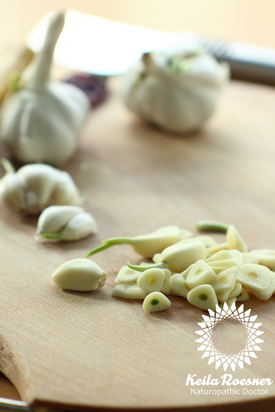 What can help ward off a cold, lower blood pressure, reduce cholesterol, improve blood glucose and help you lose weight… and is also deliciously addictive? Garlic and Olive Oil. The basis of a Mediterranean diet. When combined, these two pantry staples make a luxurious, flavorful condiment that is pretty wicked. As long as I can remember, my father grew the BEST garlic. Every year my mother would peel baskets full of fresh heads of garlic and freeze them for easy use while cooking for the rest of the year. She would often fill a mason jar with the fresh peeled cloves and olive oil so that I wouldn’t have to buy sub-par, bland garlic. When I was at Naturopathic College, I fell in love with shawarma. Roasted meat, pickled veggies… and the heavenly sauces. Nothing better at the end of a long day. It always seemed so complicated to make so I never really tried until a few years ago. My first trial? The addictive white garlicky sauce call toum… or as I call it “Crack Sauce”. It is seriously my favorite sauce to put on almost anything. This is by far the easiest and most authentic recipe I’ve tried and it’s packed with heart-healthy olive oil and garlic. You need:
Here’s what you do:
This sauce works beautifully with roasted meat and veggies or fish. Store in a sealed contained in the fridge for up to two weeks. Eat liberally during the cold months to help keep your immune system strong. Want to really reduce your risk of getting sick? Sign up for my natural Cold & Flu Prevention program. Have YOU ever tried Lebanese Garlic sauce? Comment below! In health, Dr. Keila Roesner BHSc ND
References
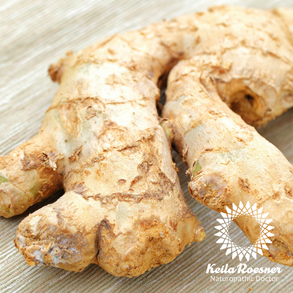 When the air starts to get a little chilly and you have a tickly in your throat… and your first thought is “Oh crap..!” what do you do? When there’s “something going around” and everyone around you has a cold, you might be exposed to any of the following viruses: Human Rhinovirus (over 100 strains!), Coronovirus (only about 5 infect humans), Human Parainfluenza Viruses, Adenoviruses and Respiratory Synctial Viruses. While there are plenty of folk remedies out there to ward off the common cold… some more effective than others. As a Naturopathic Doctor, I love working with herbs to help support the immune system, reduce congestion and speed recovery time. My favorite herbs to help fight off the common (but inconvenient!) cold include ginger, Echinacea, garlic, and andrographis. Ginger has long been used in Asia as a “warming” spice to improve circulation. Clinical studies have proven ginger to have some antiviral properties, can be effective against arthritis pain and inflammation and can be helpful for low appetite and nausea. Ginger can also help decrease menstrual cramps! And it’s always nice to sip on something warm! You need:
Here’s what you do:
Want to really reduce your risk of getting sick? Sign up for my natural Cold & Flu Support Program. In health, Dr. Keila Roesner BHSc ND
References
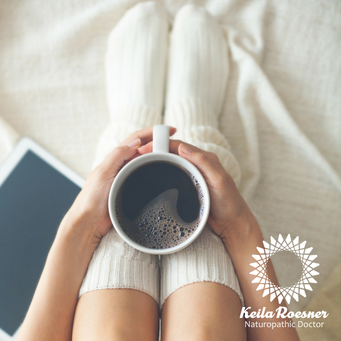 Let’s face it: having a cold sucks. You know you’re going to be out of the game – or at least not at your best – for a few days. Having cold and kids – or kids with colds – is even worse. Contrary to popular belief, over-the-counter products marketed to help you push through the day are NOT the best way to get over a cold. While they can be helpful if you absolutely cannot miss a day, they do nothing to support your immune system. If you’ve been burning the candle at both ends, it’s not unusual for your body to take a little hit and become vulnerable to whatever virus is going around. The best cold & flu prevention is keeping your body in good shape so that your defenses don’t go down. In the event that you do find yourself under the weather, here’s one of my favorite ways to reduce congestion and support the immune system. I have consistently found that this helps reduce recovery time and helps me feel a lot more human. What is it? Magic Socks. Because they work so beautifully in kids, are safe, easy and inexpensive. I do this at the first sign of a cold, and recommend it to my patients as well. You need:
Here’s what you do:
Your socks should be completely dry by the morning with warm feet. Repeat for 2-3 nights to decrease sinus congestion and help you sleep. Now of course, you want to make sure that your feet are warm before starting the treatment, to avoid getting a chill. You will also want to do this as a part of your Naturopathic cold treatment program and work with your health care provider to make sure that you are recovering well and not dealing with a more serious health concern. As always, use your best judgement. Want to really reduce your risk of getting sick? Sign up for my natural Cold & Flu Prevention program. In health, Dr. Keila Roesner BHSc ND Reference: “Lectures in Naturopathic Hydrotherapy” by Wade Boyle, N.D & Andre Saine, N.D. Eclectic Medical Publications, Sandy Oregon 1988.
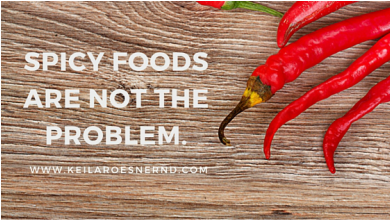 There's a burning fiery pit in your chest. It's not a heart attack. You've checked with your doctor before. It's feels heavy, uncomfortable and burns. At your last visit you were told that you probable have GERD. And you think, "what a goofy name for something that feels like hell!" Heartburn, or Gastroesophageal Reflux Disease (GERD) accounts for one out of three primary care visits, and has been increasing quite dramatically over the last two decades (1). It's now estimated that 18-27% of adults in North America experience heartburn at least once weekly (2), and many experience it daily. Which absolutely sucks. This sharp increase can be attributed to rising rates of obesity, and is more common amoungst smokers and with age. Common symptoms of GERD include:
A diagnosis of GERD is often made at the physicians office, and then commonly, anatacids (Gavison, Rolaids, Tums), H-2 receptor blockers (Pepcid AC, Zantac) or Proton pump inhibitors (PPIs, like Prevacid, Losec etc.) are recommended to "stop the burning". If it helps, it is assumed that GERD was your problem. But we seem to have gotten a little caught up with this idea that burning = too much acid. If you've read my blog "Why Does My Stomach Hurt?" you'll see that it is a little more complicated than that. Heartburn typically stems from one of four causes:
Very rarely have I ever seen increased stomach acid cause heartburn. Rather, it is most likely a combination of low stomach acid, over-eating and a weak lower esophageal sphincter. Zollinger-Eillison Syndrome is the only known cause of increased stomach acid, and is a very rare condition where one or more tumours in the small intestine or pancreas (gastrinomas) secrete a large amount of the hormone gastrin which then causes the stomach to produce too much acid (5). In summary, your stomach is probably not too acidic. But something else is going on, making your uncomfortable. Don't you want to find out.. and fix it? If you or someone you love is experiencing heartburn and want to treat the cause, please book a Free 15 Minute Health Discovery Session with me. In our next few blogs, I will outline how to know if GERD is part of a larger puzzle and how you can start improving it naturally. Until then, happy digesting! References:
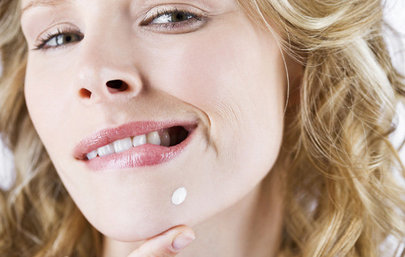 http://vipmobiledayspa.wordpress.com/2013/06/28/super-foods-that-fight-acne/ http://vipmobiledayspa.wordpress.com/2013/06/28/super-foods-that-fight-acne/ Ugh. 7 am. There's a bright red, angry monster that somehow took up residence on your chin overnight and is now staring back at you in the mirror. The beast hurts when you touch it. It is also probably giving you the stink-eye, just in time for your incredibly important interview. I've been there too. As a teen I had acne so bad it covered my face, chest and back. I went through years of antibiotic creams, washes, birth control pills that I never wanted, and Proactive facial care systems that stained all of my mother's towels. I was even on Accutane for two years. A high dose pharmaceutical variation on Vitamin A, Isotretinoin or Accutane, is commonly prescribed for severe cystic acne. While it is known teratogen (meaning that it is known to cause severe birth defects), a less common side effect of the drug is anxiety, depression and even suicidality. Fun times for me, when both me and my high school boyfriend were taking long courses of Accutane. It worked, however it was a pretty dark time and I'm lucky my family was so patient with me. It has since been taken off the market in Canada due to a possible link between use and Inflammatory Bowel Disease. Yikes! Acne vulgaris (the medical, even uglier sounding term) can be caused by a number of concerns, including: Hormonal imbalances - excess testosterone, or excess estrogen, PCOS, puberty, pregnancy/post-partum, menopause hormonal changes Food sensitivities - dairy, gluten, eggs are the most common although there are many other possible culprits, sugar, preservatives Digestive Weakness - low stomach acidity, excess protein (often from conventionally raised animals whose meat is pro-inflammatory and hormone-laden), poor gut flora, recent antibiotic use Medications - corticosteroids, oral contraceptives, anabolic steroids Allergies - cosmetics, chemicals, fragrances, clothing material, detergent Stress - lack of sleep, stress hormones in overdrive, less-than-scrupulous (or overly vigorous) hygiene But I'm not a teenager anymore! While it can be pretty devastating dealing with acne as a teen, most of us grow out of it. However, some people have acne lasting well into their 30's and 40's. Many others are suddenly faced with some angry crops of acne as adults. Several women I see with adult acne struggle to be taken seriously in their professional lives while feeling that that they look like a kid. Acne is not uncommon in the body-building world either, as anabolic steroids, sweaty work-out cloths and high amounts of whey protein powders can contribute to facial and b-acne. In these cases, look to food sensitivities and other environmental factors. Another form of adult acne, Rosaceae, is often related to low stomach acid or or food sensitivities. So what can I do for my adult acne? 1. Ditch the chemical laden products - Check out EWG's Skin Deep Cosmetic Database to determine if your cosmetics and personal care products could be contributing to your symptoms. Pay particular to expensive high-end brands - many of them have some particularly nasty ingredients. 2. Switch to raw honey as a facial cleanser. Full of good bacteria, honey acts as a skin normalizer for both oily and dry skin and promotes healing. 3. a) Limit sugar, dairy and processed foods. Low glycemic diet and acne (American Journal of Clinical Nutrition, 2007), Acne: the role of medical nutrition therapy (Journal of the Academy of Nutrition and Dietetics, 2013) b) Clean up your diet. Focus on lots of orange and yellow fruits and vegetables like carrots, winter squash, and pumpkin as they contain beta-carotene to help improve skin health. Leafy greens such as dandelion, beet greens, spinach, kale, chard, water cress, blue-green algae (spirulina, seaweeds) tonify the liver to help balance hormones. Mung beans, adzuki beans, unpeeled cucumber slices, alfalfa and soy sprouts are all used in Traditional Chinese Medicine for the treatment of acne as well. 4. Drink lots of water and green tea. Your kidneys and liver filter toxins out of your body - staying well hydrated assists this function. 5. Adopt a regular stress management practice. Acne is associated with lower self-esteem, higher and rates of depression - Understanding the burden of adult female acne (Journal of Aesthetic and Clinical Dermatology, 2014). Yoga, deep breathing, and exercise can be helpful for confidence breathing, handling stress and improving your quality of life. Check out Jean's story... this is a great example of how naturopathic medicine can help treat adult acne with amazing results! Naturopathic approaches to acne involve removing food sensitivities, creating a tailored supplement protocol, stress management exercises and hormonal support as needed to help resolve current acne, minimize scarring and reduce the occurrence of future outbreaks. If you are struggling with acne - whether you are a teen or a grandmother or anywhere in between - let's set up a time to chat. Here's to your clear skin! Dr. Keila 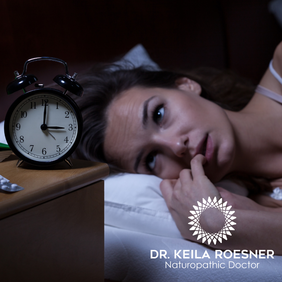
It was 2 pm and I was sitting in my first year physiology class at the Canadian College of Naturopathic Medicine.
I knew that it was important to stay awake but the more I tried to focus on my professor's words, I Just. Kept. Falling. Asleep. It felt so good, telling myself that I would just rest my eyes while listening to how the kidneys are supposed to work. Unfortunately I would wake with a gasp about every two minutes. I always blew my cover. I had told myself that I was just tired, that I didn't need to see anyone. I knew I didn't want the zombie pills that many of my family members were taking, you know, being a first year Naturopathic student and all. I needed help. That was the first time that I consulted a Naturopathic Doctor. Insomnia is one of the most common reasons for people to seek health care. Indeed, the vast majority of the patients I see have some sleep issues and are sometimes surprised to be told that they have insomnia. People with insomnia often have difficulty either falling or staying asleep, wake up too early and may feel un-refreshed in the morning. Insomniacs are also more likely to develop depression, anxiety, high blood pressure, heart disease, insulin resistance, diabetes, be overweight or obese, report substance abuse, have poorer cognitive performance and memory and take sick days from work. In other words, many of us are not sleeping and it is a problem. So what did I do? I learned the hard way. I know what it is like trying to function when you need to be at your best...and failing. I also learned that a few simple hacks can make all the difference. The Essentials for Good Sleep and Preventing Insomnia, Naturally:
If after implementing all of these measures consistently you are still having trouble sleeping, know that there are many options to help support you. As a Naturopathic Doctor, my role is to help identify the factors that may be contributing to your poor sleep, and helping you to create a treatment plan that is tailored to suit your lifestyle. I use a combination of therapies with great success to get my patients sleeping well. If you are interested in how I can help you, you are welcome to book a Health Discovery Session with me. I have helped many people, just like you, to get a good night's rest naturally. And me? I sleep like a baby now. 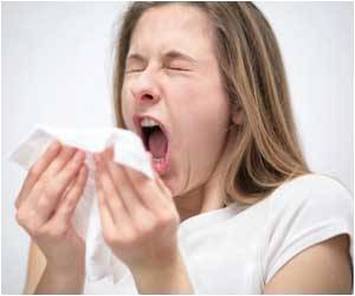 Note that most of us don't look this put together when we're at home with a cold. There's probably more fall-out and stains on our dazzling white T-shirts. Note that most of us don't look this put together when we're at home with a cold. There's probably more fall-out and stains on our dazzling white T-shirts. Tackling the common cold naturally is easy. Here's how I recover when I'm feeling under the weather. Like the beginning of my relationship with my husband, it all started with a tickle. It quickly progressed to a fever. (Fever! In the morning, fever all throuu--gh the night!). I had it and I had it bad. Only this time I'm talking about a cold. I knew after a few weeks of irregular bedtimes, post-Valentines chocolate haze and some business decisions my body was telling me that it was time to take better care of myself. All in all I was only out for three days, but during that time I slept like it was my job. I'm feeling much better because, you know what? I've got some tricks up my sleeve. Want to know what this ND does when a cold strikes? Yes, you do. Licorice root tea
Ginger decoctions
Warming socks
Yoga
Sleep
If your family is interested in cold & flu prevention, naturally, book a FREE 15 minute appointment with me to learn how I can help you. Be well. It's January. And it's really cold outside. For most of us, myself included, this means wanting to hibernate inside and procrastinating shoveling. This is also the time where we might begin reflecting on our New Year's Resolutions. In my last blog post I shared with you that my goal is to be truer to myself. In keeping with that theme, when I heard the CBC Marketplace's "Detox" special was being aired I got a little excited. And then, frustrated at the blanket "detoxes do not work" approach. Finally, I felt like shoving forks into my eyes in exasperation over the picky eating, sugar guzzling and misinformation. So instead of fuming about this in the privacy of my own home, I decided to review my thoughts (hopefully calmly and collectedly) for you in this - my first attempt at a Video Blog.. Enjoy! My general thoughts are on detoxes are this:
1. We need to examine WHY we think we need to detox. Do you feel that your body is inherently "dirty" and in need of cleaning? Are you unsatisfied with your health/energy/weight/self-esteem/sex life and feel that you need a change? Have you been watching Dr. Oz lately? 2. There are different kinds of "detoxes" and they are not necessarily safe, appropriate, cost-effective or useful for everyone. Many over-the-counter products act as laxatives. Sometimes this is the only thing that they do. While it is true that we need healthy organs of elimination to remove run-of-the-mill toxins and excess hormones from our bodies, making you go Number 2 a lot isn't the only way of doing this. Nor is it getting at the heart why you are constipated in the first place. In fact, laxative abuse and over-use are a leading cause of malabsorption, sluggish colon activity, diarrhea and abdominal pain. Raw diets and juicing cleanses are also popular, and although they can be effective for some people, I am a firm believer in the Traditional Chinese Medicine school of thought wherein we should be eating according to the seasons. When it is this cold outside, it is simply too taxing on the body to be digesting that much raw food. Dr. Oz's 48 Hour Cleanse is not inherently bad, I just don't think that 48 hours of eating a clean diet is enough for someone that is likely eating poorly in the first place. In fact, the recipes are similar to something that I would recommend, but I think the claims are grossly over-inflated. The best form of "detox-ing" is not needing to detox ie. eating a clean diet, exercising, allowing time for self-care, making stress management a priority. 3. A "detox" should not be a one-stop shop for your health care. True wellness is about achieving balance physically, emotionally, spiritually, socially. A detox will never be effective if you are following an unhealthy lifestyle (irregular sleeping and eating patterns, too much sugar, alcohol, caffeine, not enough exercise, negative/self-destructive thought patterns), do the program for 2 or 5 or 30 days etc. and then go back to the habits that are making you sick in the first place. As I mentioned in the video, doing an appropriate detox as a kick-start to healthier habits that you will be maintaining long-term makes much more sense than saying "I did my detox, I'm healthy for the year!". 4. A "detox" is not suitable for everyone. Sometimes I see patients that say they felt great after doing a detox. If part of the program is eliminated sugar, refined carbohydrates, alcohol and eating lots of fresh healthy foods, doing yoga or walking etc., I'd say we are on the right track. Again, sustainable changes. However, I also see a proportion of people that say they've never felt worse during or after. This is because many toxins such as mercury, lead, DDT, bisphenol A, parabens and plastics are fat soluble. Once we start to mobilize these bad boys at an accelerated rate via sweating, supplements, fast weight loss, we have an increased amount circulating in the blood stream. Whereas before, there were tucked away in our fat cells (lovely picture, isn't it?), now they are free to run around and make us feel nasty. This is why I almost never recommend a harsh detox for someone suffering from chronic conditions like chronic fatigue syndrome, fibromyalgia, SLE (lupus), rheumatoid arthritis, pain, cancer, or heart disease. It's too much too fast for someone already burdened by pain and low energy. 5. A good therapeutic "detox" works at stimulating your body's routes of elimination (skin, sweat glands, kidneys, bowel, lymphatic system and liver) so that your body does the work, not the product. A tailored therapeutic detox will discuss healthy eating, exercise, stress management, emotional health, at-home self-care and perhaps some good-quality supplements specific for your needs. As I've outlined my Top 5 Tips for At-Home Detox in the video, I will finish by say that under-taking a therapeutic detox - which definitely differs from an over-the-counter program should be taken under the guidance of a licensed and knowledgeable health professional, at the right time of year, and should be appropriate for your health concerns and goals. Book a Health Discovery Session to see how I can help you meet your health goals. References: 1. Roerig JL, Steffen KJ, Mitchell JE, Zunker C. Laxative abuse: epidemiology, diagnosis and management. Drugs. 2010 Aug 20;70(12):1487-503. doi: 10.2165/11898640-000000000-00000. 2. Crinnion WJ. Toxic effects of the easily avoidable phthalates and parabens. Altern Med Rev. 2010 Sep 15(3): 190-6. 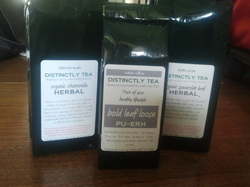 My loot from Distinctly Tea! My loot from Distinctly Tea! At the end of my first week of clinic I felt a little off. Let's just say that in my enthusiasm for my new practice that I wasn't eating quite enough. Add to that a little less time to prepare meals and I had a recipe for a few headaches and digestive unrest. No emergencies or anything, just not a feel-good combination. So what does a Naturopathic Doctor do when she gets sick? She opens her toolbox of course! My go to for any digestive-related distress has always been a cup of peppermint or spearmint tea. I can typically feel it working within a few minutes of having that hot steaming mug. Guaranteed. I walked downtown to my favorite tea purveyor, Distinctly Tea, on York Street. They have the best teas around and even when I was in Toronto studying at the Canadian College of Naturopathic Medicine, I would make the trek anytime I came back home into the store to fill up my home herbal dispensary. Call me loyal or stubborn, but it's the only place I go for my tea. Anyways, when I got there, I ordered a 100 g bag of my organic spearmint or, as I learned it in my training, Mentha spicata.. I also remembered that I was out of chamomile - another great digestive, calming herb that acts as a carminative. A carminative, for those not familiar with herbal medicine, is an herb that acts to release gas and settle an upset stomach. Highly recommended after any rich meal. I love Distinctly Tea's chamomile because it tends to be a lot less bitter than others that I've tried in the past. Did you know that the name "chamomile" is translated from the Greek words meaning "ground apple"? A good bag of Matricaria recutita does indeed smell of apples. Our amazing massage therapist, Samantha Mount, at the Stratford Health & Wellness Centre is a fan of Pu-erh tea. I remember learning that pu-erh in particular is great for tummy troubles too. In Traditional Chinese Medicine, the Spleen is responsible for transforming the food we eat and sending the nutritional components of it out to the body, to allow good circulation of Qi (the vital force of the body) and Blood, nourish the muscles and promote good mental energy. When the Spleen is distressed we can become fatigued, lethargic, have poor memory, have digestive upset and easy bruising. Pu-erh tea helps to nourish the Spleen and dispel "Damp"...a perfect pairing with my somewhat empty and un-restful feeling belly. With its earthy taste and calming aroma... and my full shopping basket I was ready to check out. I get home, make myself a combination cup of the pu-erh and peppermint. Guess what? Within five minutes, I could feel things start to get better. And this is what I love about being a Naturopathic Doctor: having the tools to treat all the little things that come up. I teach my patients how to manage their symptoms at home. I am a real believer in having people feel empowered about their health care, and feeling like they are in the driver's seat. I act as a guide, steering people through their concerns, but ultimately it is up to each of us to step up and take control of our health. Even if it's as simple as a making a cup of tea. |
Top 75 Naturopath Blogs & Websites For Naturopathic DoctorsAuthorDr. Keila Roesner is a Naturopathic Doctor. When not treating patients she is also an enthusiastic barefoot-strolling, music-loving, yoga-doing kitchen wiz - who also happens to be a wrestling fan. Categories
All
|
Let us take you from hormonal to whole.
|
Dr. Keila Roesner, BHSc ND
Naturopathic Doctor, Hormone Warrior and Your Wellness Cheerleader 247 Church Street, Stratford ON N5A 2R7 (519) 273-0900 [email protected] |
|





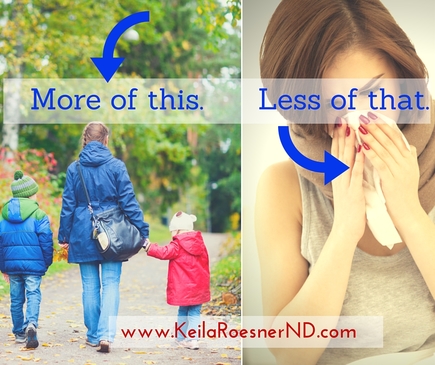


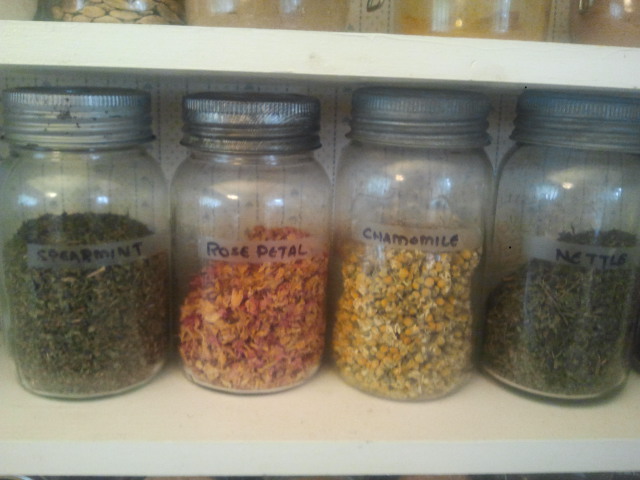

 RSS Feed
RSS Feed